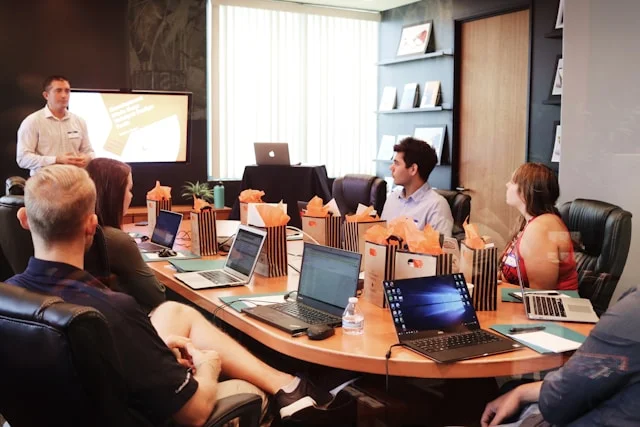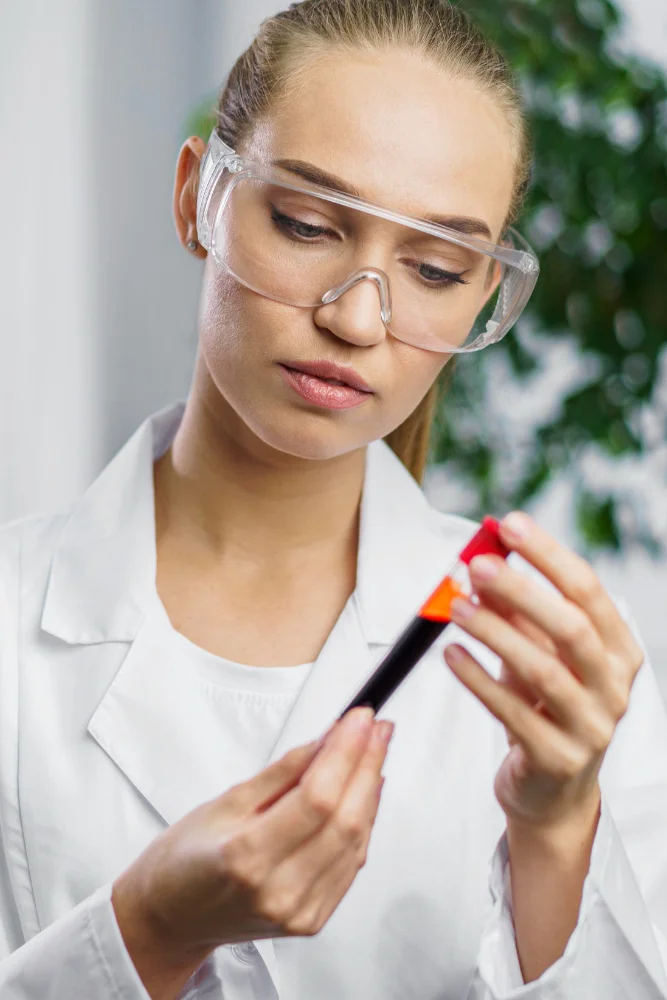Introduction to Totally Science
In an era marked by rapid technological advancements and complex global challenges, the landscape of scientific research is undergoing a transformative shift. Totally Science emerges as a comprehensive framework that transcends traditional disciplinary boundaries, fostering interdisciplinary collaboration, innovation, and sustainable solutions. This integrative approach is reshaping how experts across diverse scientific domains collaborate, innovate, and address pressing issues, making Totally Science a cornerstone of modern scientific excellence.
Defining Totally Science
Totally Science is a multifaceted approach that emphasises the seamless integration of various scientific disciplines, methodologies, and technologies to tackle intricate problems. Unlike conventional scientific practices that often operate within isolated silos, Totally Science promotes a unified, cohesive strategy that leverages the strengths of multiple fields to achieve holistic and impactful outcomes.
Core Principles of Totally Science
- Interdisciplinarity: Encouraging collaboration across diverse scientific fields to create comprehensive solutions.
- Integration of Technology: Utilising cutting-edge technologies such as artificial intelligence, big data analytics, and biotechnology to enhance research capabilities.
- Sustainability: Focusing on sustainable practices that consider long-term environmental, economic, and social impacts.
- Open Collaboration: Promoting open-access research, shared resources, and transparent communication to accelerate scientific progress.
- Innovation-Driven: Cultivating a culture of continuous innovation and adaptability to stay at the forefront of scientific discovery.
The Pillars of Totally Science
1. Interdisciplinary Collaboration
Totally Science thrives on the synergy created by bringing together experts from diverse scientific backgrounds. This collaboration fosters a rich exchange of ideas, methodologies, and perspectives, leading to more robust and innovative solutions. For instance, integrating insights from biology, computer science, and engineering can lead to breakthroughs in biomedical engineering, such as the development of advanced prosthetics or personalised medicine.
2. Advanced Technological Integration
The integration of advanced technologies is a hallmark of Totally Science. Tools like artificial intelligence, machine learning, and big data analytics enable researchers to process vast amounts of information, identify patterns, and make data-driven decisions. In environmental science, for example, AI can predict climate change trends by analysing complex datasets, thereby informing more effective mitigation strategies.
3. Sustainable Scientific Practices
Sustainability is at the core of Totally Science, ensuring that scientific advancements contribute positively to society and the environment. This involves adopting eco-friendly research methods, developing sustainable technologies, and considering the ethical implications of scientific work. Sustainable practices not only preserve natural resources but also promote social equity and economic stability.
4. Open Access and Transparency
Totally Science advocates for open access to research findings, data, and resources. By making scientific knowledge freely available, researchers can collaborate more effectively, replicate studies, and build upon each other’s work. This transparency accelerates the pace of discovery and fosters a more inclusive and equitable scientific community.
5. Fostering Innovation and Creativity
Innovation is the lifeblood of Totally Science. By encouraging creative thinking and experimentation, this approach drives the development of novel solutions and technologies. Whether it’s pioneering new materials in materials science or inventing sustainable energy sources in engineering, Totally Science nurtures an environment where groundbreaking ideas can flourish.
Impact of Totally Science Across Various Fields
1. Biomedical Research
In biomedical sciences, Totally Science facilitates the integration of genomics, bioinformatics, and personalised medicine. This holistic approach accelerates the development of targeted therapies, enhances our understanding of complex biological systems, and improves patient outcomes. For example, combining genetic research with data analytics can lead to breakthroughs in identifying biomarkers for early disease detection.
2. Environmental Science
Totally Science plays a crucial role in addressing environmental challenges by merging insights from ecology, chemistry, and engineering. This interdisciplinary strategy is essential for developing sustainable solutions to climate change, pollution, and resource management. Innovations such as biodegradable materials and renewable energy technologies are direct outcomes of this integrated approach.
3. Engineering and Technology
In engineering, Totally Science encourages the fusion of mechanical, electrical, and software engineering to innovate smarter and more efficient technologies. This integration is pivotal for advancements in fields like robotics, renewable energy, and smart infrastructure. For instance, the development of autonomous vehicles relies on the convergence of mechanical design, electrical systems, and advanced software algorithms.
4. Physics and Astronomy
Totally Science enables physicists and astronomers to collaborate with other disciplines, such as computer science and materials science, leading to breakthroughs in quantum computing, space exploration, and astrophysical research. The quest to understand dark matter, for example, benefits from interdisciplinary efforts combining theoretical physics, observational astronomy, and advanced computational models.
5. Social Sciences and Humanities
Even in traditionally non-STEM fields, Totally Science fosters integration and collaboration. Combining social sciences with data analytics and technology can lead to deeper insights into human behaviour, societal trends, and policy development. This interdisciplinary approach enhances the effectiveness of solutions addressing social issues like public health, education, and urban development.
Fostering Innovation Through Totally Science
Collaborative Research Platforms
Platforms that support Totally Science, such as integrated research networks and collaborative tools, are instrumental in facilitating seamless cooperation among experts. These platforms provide the infrastructure needed for data sharing, joint experiments, and collective problem-solving. Examples include online collaboration tools like GitHub for code sharing and platforms like ResearchGate for academic networking.
Cross-Disciplinary Education and Training
Educational institutions embracing Totally Science principles offer interdisciplinary programs that equip scientists with a diverse skill set. This education model prepares experts to tackle multifaceted problems with a broad perspective and versatile expertise. Universities are increasingly offering programs that combine fields like bioengineering, data science, and environmental studies to foster interdisciplinary expertise.
Funding and Policy Support
Government and private sector funding initiatives that prioritise interdisciplinary research are crucial for the advancement of Totally Science. Policies that encourage collaboration and resource sharing further reinforce this comprehensive scientific approach. Funding agencies are now more inclined to support projects that demonstrate interdisciplinary collaboration and potential for broad impact.
Innovation Hubs and Research Centers
Establishing innovation hubs and specialised research centres dedicated to interdisciplinary studies can significantly boost Totally Science initiatives. These centres provide a conducive environment for researchers from different fields to collaborate, share resources, and develop innovative solutions. Examples include the MIT Media Lab and the Santa Fe Institute, which are renowned for their interdisciplinary research contributions.
Overcoming Challenges in Implementing Totally Science
Breaking Down Disciplinary Silos
One of the primary challenges in adopting Totally Science is overcoming the entrenched nature of disciplinary silos. Encouraging a culture of collaboration and mutual respect among different scientific communities is essential. Strategies include interdisciplinary workshops, joint seminars, and collaborative projects that require input from multiple fields.
Effective Data Integration and Management
Managing and integrating vast amounts of data from diverse fields requires robust data management systems and standardised protocols. Investing in advanced data analytics, interoperability solutions, and comprehensive data governance frameworks can mitigate these challenges. Tools like FAIR (Findable, Accessible, Interoperable, Reusable) data principles are instrumental in ensuring effective data integration.
Equitable Funding Allocation
Ensuring equitable funding distribution across interdisciplinary projects is vital. Transparent and strategic funding mechanisms can support innovative projects that embody the principles of Totally Science. Establishing dedicated grants and funding streams for interdisciplinary research can incentivize collaboration and resource sharing.
Enhancing Communication and Collaboration Skills
Effective communication and collaboration skills are crucial for interdisciplinary teams. Training programs and workshops that focus on enhancing these skills can facilitate better teamwork and project outcomes. Encouraging open communication, active listening, and mutual understanding among team members from different disciplines is key to successful collaboration.
The Future of Totally Science
As global challenges become increasingly complex, the necessity for a Totally Science approach becomes undeniable. Future advancements are likely to be driven by even greater integration of disciplines, enhanced by emerging technologies such as quantum computing, nanotechnology, and synthetic biology. The continuous evolution of Totally Science will not only accelerate scientific discovery but also ensure that innovations are sustainable, equitable, and beneficial to society at large.
Emerging Technologies and Their Role
- Quantum Computing: Revolutionising data processing and problem-solving capabilities, enabling breakthroughs in fields like cryptography, materials science, and drug discovery.
- Nanotechnology: Facilitating the development of advanced materials, medical devices, and energy solutions through the manipulation of matter at the atomic and molecular levels.
- Synthetic Biology: Advancing genetic engineering, bio-manufacturing, and sustainable agriculture by designing and constructing new biological parts and systems.
Global Collaboration and Knowledge Sharing
The future of Totally Science will be characterised by enhanced global collaboration and knowledge sharing. International research collaborations, open-access publications, and global scientific networks will play a pivotal role in driving collective progress and addressing transnational challenges.
Ethical and Responsible Scientific Practices
As Totally Science continues to evolve, ethical and responsible scientific practices will remain paramount. Ensuring that scientific advancements are aligned with societal values, ethical standards, and regulatory frameworks will be essential for maintaining public trust and achieving sustainable progress.
Conclusion
Totally Science represents a transformative approach to scientific research and application, emphasising comprehensive integration and collaboration across disciplines. For experts seeking to push the boundaries of knowledge and innovation, embracing Totally Science is imperative. By fostering interdisciplinary cooperation, leveraging advanced technologies, and prioritising sustainability, Totally Science paves the way for groundbreaking discoveries and solutions to the world’s most pressing challenges. As we advance into an era of unprecedented scientific potential, Totally Science stands as a beacon guiding us toward a more unified, innovative, and impactful scientific future.






